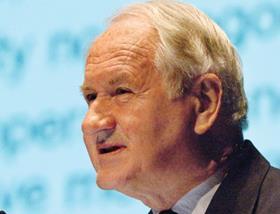
Australian Horticultural Exporters Association (AHEA) chairman David Minnis has questioned why the export sector was overlooked in a recent independent review of Horticulture Australia Limited (HAL) and the horticultural levy system.
“Unless we have export, the horticulture industry is doomed,” Minnis said. “We overproduce for the domestic market and the growers need to have that extended market in order to survive into the future.”
Consultancy firm Acil Allen released a report and subsequent recommendations stemming from the review last Friday (9 May).A key recommendation was the transition of HAL into a grower-owned research and development corporation (RDC).
Minnis did not speculate on whether the creation of a new RDC was required, but was admittedly ‘amazed’ the report did not make one mention of export.
The AHEA has confirmed it contributed to the review process but had not been directly approached by Acil Allen for consultation. Minnissaid recommendations for HAL to improve its strategic management, reduce costs and streamline industry liaison were consistent with submissions made by the AHEA.
“HAL needs to work closer with associate organisations like AHEA so that they are current on the issues that affect export and in turn, grower returns,” Minnis explained.
“The R&D focus needs to reflect areas of disinfestation, cold chain management, post-harvest handling and transport studies.'
Peak industry body, Apple and Pear Australia Ltd (APAL) has also welcomed a number of key findings from the report, particularly those relating to the need for greater levy efficiency and transparency.
“Our primary concern with the review of HAL was to ensure better results for fruit growers,” said APAL’s chairman John Lawrenson.“Most of the recommendations are consistent with our own regarding HAL improving project management and cutting costs. APAL would like this to translate into a reduced bureaucracy and simplified processes to ensure that more of the levies growers pay are directed into projects designed to help growers rather than administration and overheads.”
HAL has not yet made comment on the review, the report or the recommendations. The AHEA believes a committee will be formed to discuss and drive forward the relevant recommendations, potentially replacing HAL’s industry advisory committees, which were set up to facilitate communication between HAL and industry sectors.
“It is hoped that associate organisations such as AHEA are able to form part of this advisory capacity that the strategic approach is taken nationally as an industry,” Minnis said.



